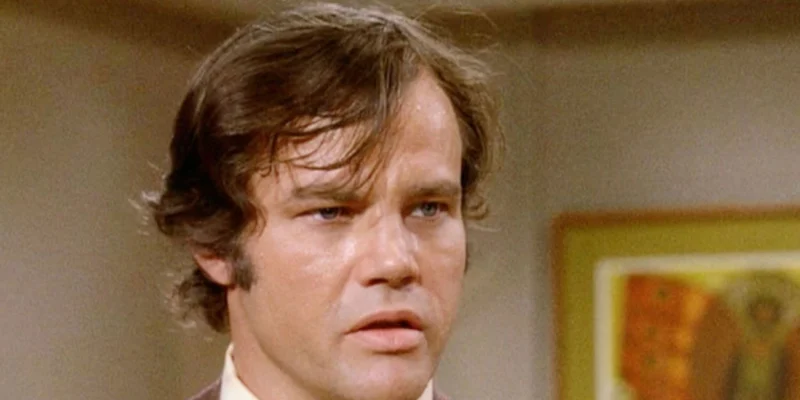
The veteran actor Joe Don Baker Net Worth is $2 million at the time of his death in May 2025, built his fortune through a career spanning nearly five decades. Known for his rugged roles and commanding presence in Hollywood, Baker made his mark playing tough guys on both sides of the law. His portrayal of real-life Tennessee Sheriff Buford Pusser in “Walking Tall” (1973) shot him to fame and set the stage for his financial success.
Many fans wonder how much wealth the actor amassed during his long career in film and television. With over 80 acting credits to his name, Baker created a lasting legacy through memorable performances in iconic films and TV shows that still resonate with audiences today.
Baker’s journey from a small town in Texas to Hollywood stardom shows how talent, perseverance, and smart career choices can build wealth over time. His financial story offers insights into the earning potential of character actors who may not reach A-list status but still build solid careers.
Early Life and Background
Born February 12, 1936, in Groesbeck, Texas, Joe Don Baker grew up in humble beginnings. His mother, Edna, died when he was only 12 years old, after which his aunt Anna Thompson raised him. His father, Doyle Charles Baker, ran a local gas station, providing a modest living for the family.
Baker showed athletic promise early on, playing football and basketball at Groesbeck High School. His talents earned him a sports scholarship to North Texas State College (now University of North Texas), where he graduated with a Bachelor of Business Administration in 1958. This education would later prove valuable in managing his acting income.
After college, Baker served two years in the U.S. Army before moving to New York City to study acting at the prestigious Actors Studio. He drew inspiration from screen legends Robert Mitchum and Spencer Tracy, whose careers he admired. Baker’s humble beginnings shaped his work ethic and determination to succeed in the competitive world of acting.
His journey from small-town Texas to New York City shows his ambition and willingness to take risks. These qualities would serve him well as he built his acting career and financial portfolio over the decades to come.
Acting Career Breakthrough
Baker’s acting journey began on Broadway in the early 1960s with roles in productions like “Marathon ’33” and “Blues for Mister Charlie.” He transitioned to television with guest appearances on popular shows like “Gunsmoke,” “Bonanza,” and “Mission: Impossible.” These early roles provided steady income while he built his reputation in the industry.
The turning point came in 1973 when Baker landed the lead role as Sheriff Buford Pusser in “Walking Tall.” The low-budget film became an unexpected hit, grossing over $40 million against a $500,000 budget. Critics praised Baker’s performance, with influential film critic Pauline Kael highlighting his work. This breakthrough role significantly boosted his earning power and opened doors to more lucrative opportunities.
Later that same year, Baker solidified his reputation with a memorable performance as a hitman in “Charley Varrick.” These back-to-back successes established him as a bankable actor who could carry films as either hero or villain. His commanding screen presence and authentic Texas drawl made him perfect for tough-guy roles that became his trademark.
The financial impact of these early successes set the foundation for Joe Don Baker Net Worth. “Walking Tall” alone would translate to over $600 million in today’s money, making it a career-defining project both artistically and financially.
Major Film Roles and Earnings
Joe Don Baker Net Worth of $2 million came largely from his film career, with his highest-paying projects coming during the 1970s and 1990s. His role in “Walking Tall” (1973) earned him significant pay since the film grossed $40 million against a tiny budget. This commercial success boosted his asking price for future roles and established his financial foothold in Hollywood.
Baker’s appearances in the James Bond franchise proved particularly lucrative. He first played villain Brad Whitaker in “The Living Daylights” (1987) opposite Timothy Dalton. He later returned as CIA agent Jack Wade in both “GoldenEye” (1995) and “Tomorrow Never Dies” (1997) with Pierce Brosnan. These high-profile roles in major studio productions likely came with substantial paychecks compared to his independent film work.
Other notable films that added to Baker’s wealth included “Junior Bonner” (1972) with Steve McQueen, “The Natural” (1984), “Fletch” (1985), and Martin Scorsese’s “Cape Fear” (1991). Working alongside stars like Robert De Niro and Robert Redford in big-budget productions helped increase his earning potential throughout his career.
When compared to peers from the same era, Baker earned steady income as a character actor rather than commanding the multi-million dollar salaries of leading men. This consistent work across five decades helped him build wealth gradually through reliable film projects.
Television Career and Income Streams
Baker’s television work provided another significant source of income throughout his career. His most notable TV role came as Chief of Detectives Earl Eischied on the NBC crime drama “Eischied” (1979-1980). Though short-lived, leading a network series likely provided Baker with a steady paycheck and greater visibility.
In 1985, Baker starred in the acclaimed BBC miniseries “Edge of Darkness,” earning a BAFTA nomination for his performance as CIA agent Darius Jedburgh. This critical recognition boosted his profile internationally and likely increased his earning potential on both sides of the Atlantic. The role showcased his dramatic range beyond action roles.
Baker also appeared in the popular series “In the Heat of the Night” (1989), temporarily replacing Carroll O’Connor as Acting Chief Tom Dugan while O’Connor recuperated from heart surgery. Guest appearances on established shows provided additional income streams throughout his career.
Television work offers actors residual payments when shows air in reruns or sell to streaming platforms. These residuals provided Baker with passive income long after filming ended. While exact figures aren’t public, industry standards suggest these residuals contributed meaningfully to his $2 million net worth over time.
Business Ventures and Investments
While primarily known as an actor, Joe Don Baker likely diversified his income through investments outside of acting. Though details of his investment portfolio remain private, many actors of his generation invested in real estate as a stable wealth-building strategy. Property investments would have provided Baker with additional income streams and appreciating assets.
Baker’s business acumen may have been influenced by his Bachelor of Business Administration degree from the University of North Texas. This education potentially gave him insights into financial management that some performers without such a background might lack. Applying business knowledge to career decisions could have helped maximize his earnings.
The entertainment industry offers numerous investment opportunities beyond acting, from production companies to entertainment-adjacent businesses. Though public records don’t reveal specific ventures, it’s common for established actors to explore such options to build wealth beyond their performance income.
Smart investments would have helped Baker weather the inevitable dry spells that affect most acting careers. The stability of his net worth at $2 million suggests prudent financial management throughout his five-decade career, allowing him to maintain a comfortable lifestyle even during periods between major roles.
Lifestyle and Spending Habits
Joe Don Baker maintained a relatively modest lifestyle compared to many Hollywood stars, which likely helped preserve his wealth. Unlike celebrities known for lavish spending, Baker kept a lower profile regarding his expenditures. This conservative approach to spending contributed to his ability to maintain a steady net worth throughout his career.
Baker owned property but didn’t flaunt multiple luxury homes or estates. After his divorce from Maria Dolores Rivero-Torres in 1980, he lived primarily in California. His Texas upbringing may have influenced his practical approach to money, avoiding the extravagant purchases that often deplete celebrity fortunes.
His car collection and travel habits stayed mostly private, suggesting he didn’t prioritize flashy vehicles or constant luxury vacations. This restraint in spending on depreciating assets likely helped protect his financial resources for long-term stability.
Baker’s charitable giving remained mostly private as well. Many actors contribute to causes without publicity, and Baker may have supported charities related to his Texas roots or the acting community. While not widely documented, such philanthropy would align with his understated public image and values shaped by his humble beginnings.
Joe Don Baker Net Worth Analysis and Breakdown
Joe Don Baker Net Worth at the time of his death in May 2025 stood at approximately $2 million, though some sources cited figures around $3 million. This wealth represented the cumulative financial result of his nearly 50-year acting career spanning from the 1960s through 2012, when he appeared in his final film “Mud.”
Baker’s assets likely included real estate holdings, investments, and retirement accounts typical for someone of his generation and career longevity. Industry standard pension plans from the Screen Actors Guild (SAG) would have provided ongoing income during his retirement years from 2012 until he died in 2025.
Compared to other character actors of similar status and career length, Joe Don Baker Net Worth placed him in a comfortable middle range. While not achieving the multi-million dollar fortunes of leading men, he maintained financial stability through consistent work in both television and film projects, avoiding the boom-and-bust cycle that affects many in the entertainment industry.
His financial growth followed a gradual trajectory rather than sudden spikes, reflecting his steady career-building reputation through reliable performances rather than blockbuster stardom. This pattern demonstrates the financial viability of a character actor’s career when managed prudently over decades of work.
Legacy and Current Financial Status
At the time of his death on May 7, 2025, Joe Don Baker left behind a financial legacy reflecting his long career in Hollywood. His last major film role came in “Mud” (2012), after which he retired from acting. During retirement, he likely lived off investment income, pension benefits from the Screen Actors Guild, and residuals from his extensive filmography.
Baker’s financial planning appears to have provided him with security in his final years. At 89 years old, he had the resources to receive proper care, living in an assisted living facility in Los Angeles before his passing. This suggests prudent retirement planning throughout his working years.
His estate planning likely addressed the transfer of his assets, though Baker had no publicly known children. The details of his will and beneficiaries remain private, but his estate would typically cover final expenses and distribute remaining assets according to his wishes.
Baker’s career choices reflected a balance between artistic fulfillment and financial considerations. Rather than chasing stardom at all costs, he built a sustainable career playing memorable characters across genres. This approach ensured a steady income while allowing him to work with respected directors and fellow actors throughout his life.
Conclusion
Joe Don Baker’s financial journey reflects the reality of a successful character actor who built wealth through consistency rather than spectacular paydays. His $2 million net worth at death in May 2025 represents decades of steady work across nearly 80 film and television projects. This career longevity provided financial stability that many actors never achieve.
Baker’s path from small-town Texas to Hollywood success shows how talent combined with business sense can create lasting financial security. His education in business administration likely informed his career decisions, helping him navigate the unpredictable entertainment industry while building and preserving wealth. His story provides valuable lessons for those pursuing creative careers.
The legacy Baker leaves behind extends beyond money to include his memorable performances that still entertain audiences. From Sheriff Buford Pusser in “Walking Tall” to his appearances in James Bond films, his work continues to generate residual payments and keep his name alive in film history. While $2 million might seem modest by Hollywood standards, it represents a successful career that provided Baker with comfort and security throughout his life and into his final years.
Stay tuned to thriveverge.co.uk for more in-depth celebrity net worth insights and the stories behind Hollywood’s most enduring stars.









